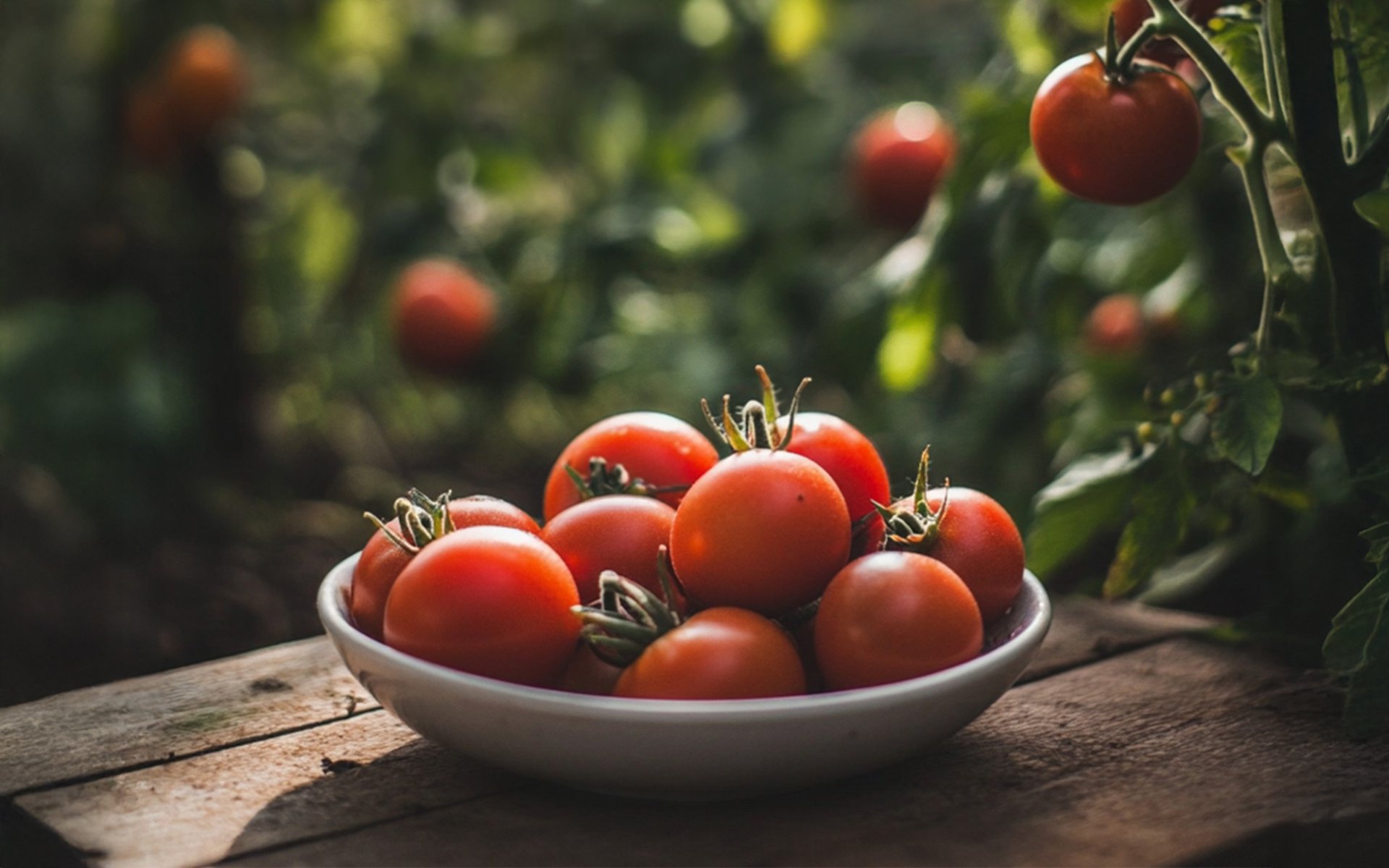Tomato: Fruit or Vegetable?

Tomato, a common household staple, has long been a subject of debate: Is it truly a fruit or a vegetable? Today, Rimping Supermarket invites you to delve into the fascinating history of tomatoes and clear up the enduring confusion that persists across botany, law, and culinary practices!
Tracing Tomato's History: From Wild Plant to Global Staple
The story of the tomato dates back approximately 500 BCE. The first human group known to cultivate tomatoes were the Aztecs in Mexico. At that time, the wild tomatoes they cultivated were small, about the size of a pea or a currant, known as the Currant tomato or Pimp. This ancient variety is considered the ancestor of all tomato species existing today, with its origins in Western South America, specifically present-day Peru, Ecuador, Bolivia, and Chile.
The popularity of tomatoes was initially limited to the Aztec regions. However, by the late 15th century, as the Spanish Empire rose to power and successfully conquered territories in South America, the Spanish learned about local indigenous knowledge. This led them to discover the tomato, and it was the Spanish who first introduced the tomato to a wider European audience. Even the English word "Tomato" is derived from the Spanish word "Tomate."
The Classic Debate: Is a Tomato a Vegetable or a Fruit?
The question of whether a tomato is a vegetable or a fruit is not a new one; it officially began in 1886 in the United States.
The Landmark Case: Nix v. Hedden (1893)
The controversy originated when John Nix, an American businessman who imported agricultural produce, sued the customs collector at the Port of New York. Nix was being charged import duties on tomatoes under the Tariff Act of 1883, which clearly stated that importers of "vegetables" must pay a duty, while "fruits" were exempt.
Nix insisted that his tomatoes were "fruits," citing botanical principles used to differentiate between fruits and vegetables. However, the U.S. Supreme Court ultimately ruled that tomatoes were "vegetables." The court reasoned that for legal and tariff purposes, the classification should be based on the common understanding and usage of the general public. At that time, most people understood tomatoes as vegetables commonly used in savory dishes, unlike fruits, which were typically eaten raw or in sweet preparations. Botanical definitions were not the primary basis for the ruling, thus affirming that imported tomatoes were subject to duty.
The Answer Depends on Who You Ask!
Despite the Supreme Court's ruling, this debate continues to this day because the answer to whether a tomato is a fruit or a vegetable depends on whom you ask and in what context:
From a Botanist's Perspective: The Tomato is a "Fruit"
Botanically speaking, a fruit is the mature ovary of a flowering plant, containing seeds. By this definition, a tomato is classified as a fruit, specifically a berry, because it contains seeds and develops from the flower of the tomato plant. This classification is incredibly useful for botanists in studying different species, cultivation methods, and harvesting practices of tomatoes.
From a Chef's and Layperson's Perspective: The Tomato is a "Vegetable"
Although botanically a fruit, legally and culinarily, the tomato is still categorized as a "vegetable." This is because tomatoes are typically used in savory dishes rather than sweet ones, whether cooked, sautéed, stewed, or even eaten raw in salads. Their culinary application aligns more with that of a vegetable.
Conclusion: Fruit or Vegetable, Tomatoes Are Beneficial!
Ultimately, whether a tomato is classified as a fruit botanically or a vegetable legally and culinarily doesn't significantly impact our consumption. The crucial point is that tomatoes are a beneficial produce, rich in vitamins, nutrients, and powerful antioxidants essential for our health.
Tomatoes are incredibly versatile ingredients that can be enjoyed in various forms: as a healthy beverage, a primary ingredient in your favorite savory dishes, or simply eaten fresh in salads. They are delicious and contribute positively to a healthy diet.


